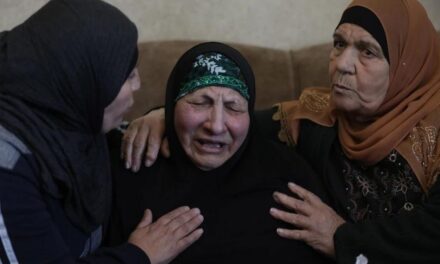From being yelled at to “go back home” while walking outside with friends or missing out on opportunities in school due to her headscarf, the discrimination has affected her mental health.
“Sometimes you feel so judged and neglected by society that you reach a down point in life and you’re like, I don’t want to wear it anymore,” the 22-year-old Western University student told Global News.
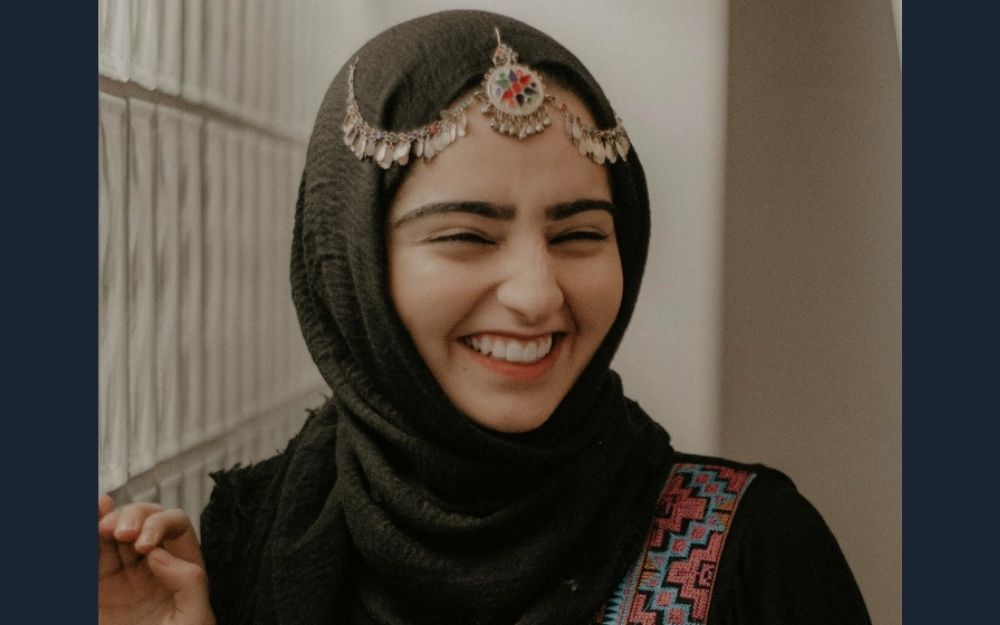
Yasmin Khan runs a podcast with her friends in an effort to “normalize the Muslim experience in the Western world for teenagers and university students”. Photo credit: Shelby LaCarte
Khan’s struggles and insecurities are shared by many other Muslim women in Canada and around the globe, who say they have faced verbal and physical attacks because of their faith.
On World Hijab Day, now in its 10th year, Muslim women are sharing their experiences on different online platforms about what it’s like to wear the hijab and why they choose to do so, while also inviting non-Muslim women from all backgrounds and faiths to step into their shoes by donning the head-covering for a day.
Bangladeshi-American Nazma Khan, who launched World Hijab Day (WHD) in 2013, said the aim is to raise awareness and normalize the wearing of a hijab.
Having faced discrimination and bullying in school and university by being spat on, chased, kicked and called a “terrorist”, Khan is hoping the annual event can foster religious tolerance so other women do not have the experiences she had to endure.
“I want to invite [people] into our lives, even for a day, just to understand [Muslim women] a little better,” she said.
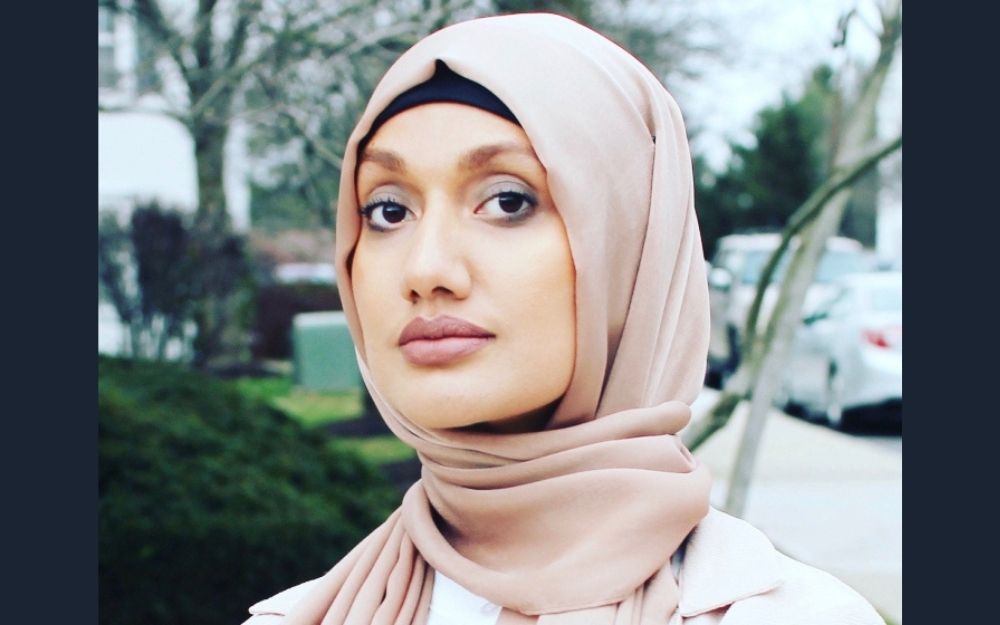
“I was made to feel like I was an alien from a different planet just because of a piece of fabric I have on my head,” said Nazma Khan. Photo courtesy World Hijab Day Organization
Nazma Khan said men can also take part in this campaign and offer their support by wearing a scarf around their neck or just holding a sign and taking a photo to share online.
The slogan this year is “hijab is our crown, not a crime” with the hashtag #DressedNotOppressed being used on social media.
Scarborough MP Salma Zahid, who will be taking part in a Zoom discussion with her local community on Tuesday, said there is a misconception that Muslim women are oppressed and forced to wear the hijab.
“It is important that we educate our friends and family members and our neighbours and that’s how we are going to learn about each other and get through those differences and build bridges,” she said.
Farwa Awan, an 18-year-old Pakistani-Canadian, said it is important to mark the day and for it to be recognized internationally because there is a “huge stigma” attached with wearing the hijab.
As the president of the University of Winnipeg Muslim Student Association, Awan was also planning to organize virtual events to spread the word about World Hijab Day.
“I think it’s a big deal to show the world that we’re not oppressed and it’s just how we express ourselves and this is part of our identity.”
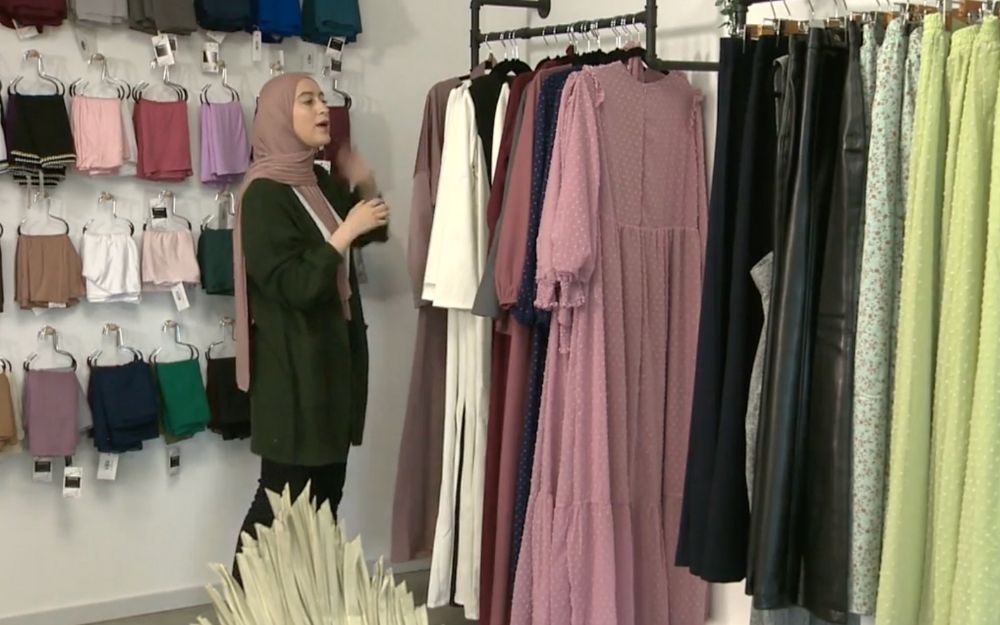
Bill 21
In Canada, there are growing concerns about Islamophobia, anti-Muslim hate crime and discrimination in light of recent events.
Earlier in December, Fatemeh Anvari, a hijab-wearing elementary school teacher in western Quebec, was reassigned from her classroom because of the province’s secularism law, which forbids teachers from wearing religious symbols.
That law, known as Bill 21, was passed in June 2019 and bans the wearing of religious symbols such as hijabs, kippas and turbans by teachers and other government employees deemed to be in positions of authority.
Premier Francois Legault‘s government has hailed the legislation as essential to maintaining secularism, which is the policy of strict separation of religion and the state, which has broad support in Quebec.
But critics have argued that it disproportionately targets Muslim women who wear the hijab or niqab and effectively treats them and other religious minorities as second-class citizens.
There is growing pressure to scrap the law and it is already being challenged by several groups and cities across Canada.
Prime Minister Justin Trudeau has said he hasn’t “ruled out” federal intervention to challenge Bill 21 in court, but won’t wade into the legal challenge – for now.
Legault has repeatedly cited strong public support for Bill 21 as a warning to any leaders outside Quebec who challenge it.
Robert Green, a history teacher at Westmount High in Montreal, said the law is “really offensive” and contrary to the values of a democratic society.
He along with other teachers in Canada will be showing their support to Anvari, as part of a global campaign launched by the WHD organization, called Teachers for Fatemeh.
Green said he will put on his Buddhist Mala beads along with a button opposing Bill 21, as an act of solidarity, demonstrating his opposition to this “terrible law” in Quebec.
“Muslim women are being targeted with discriminatory laws and with violence simply for being who they are — and that’s wrong,” Green added.
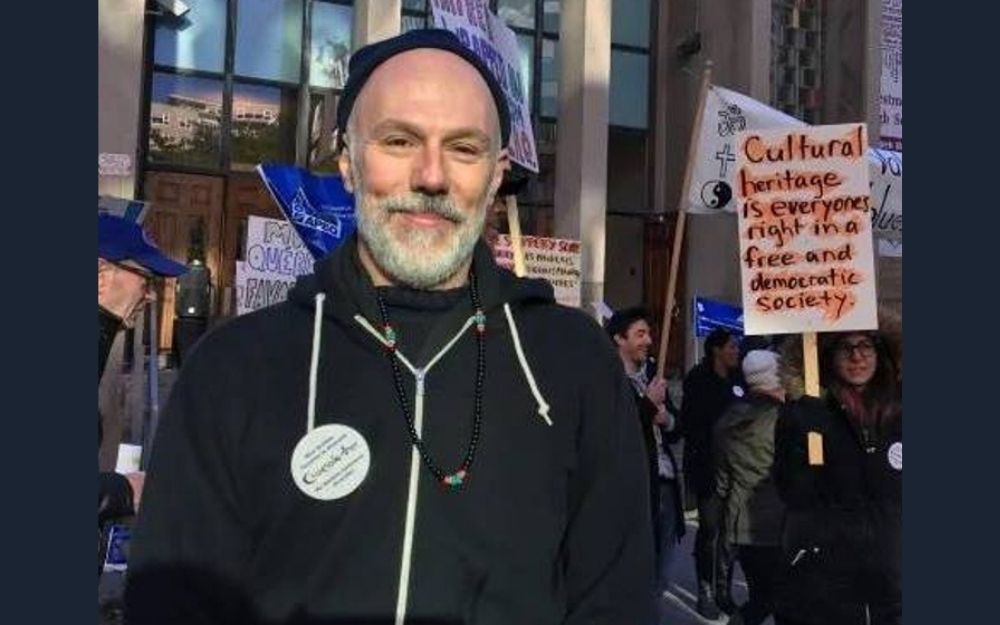
Robert Green and his school colleagues have held several events in opposition to Bill 21 and the Charter of Values in Quebec. Photo supplied by Robert Green
Safety concerns
Last summer, concerns for the safety of Muslims were heightened in Canada in the aftermath of a deadly attack in London, Ont.
In June 2021, a man intentionally rammed his truck at a Pakistani Muslim family while they were out for an evening walk, killing four members of the family. A nine-year-old boy was the lone survivor.
Yasmin Khan, who was a close friend of the Afzaal family, said that event gripped the city with fear. She noticed that Muslim women refrained from going out for walks for several months after that attack.
She, herself, is scared to walk unaccompanied to her mail-box.

Hundreds pay respects at funeral for Muslim family killed in London, Ontario attack – Jun 12, 2021
“To this day, when we’re talking to other Muslims in the community, especially the women, they have a lot of anxiety and it’s so sad that it’s caused a lack of trust in our community.”
Khan urged Muslims to seek support if they are struggling from anxiety. Since the London attack took place, non-profit Muslim Resource Center for Social Support and Integration has been actively providing support to the Muslim community in the city.
Tackling Islamophobia
On Jan. 28, the federal government announced it will be appointing a special representative in combatting Islamophobia as part of its anti-racism strategy.
Yasmin Khan said there needs to be more action to tackle Islamophobia and political leaders should do more than just make “empty statements.”
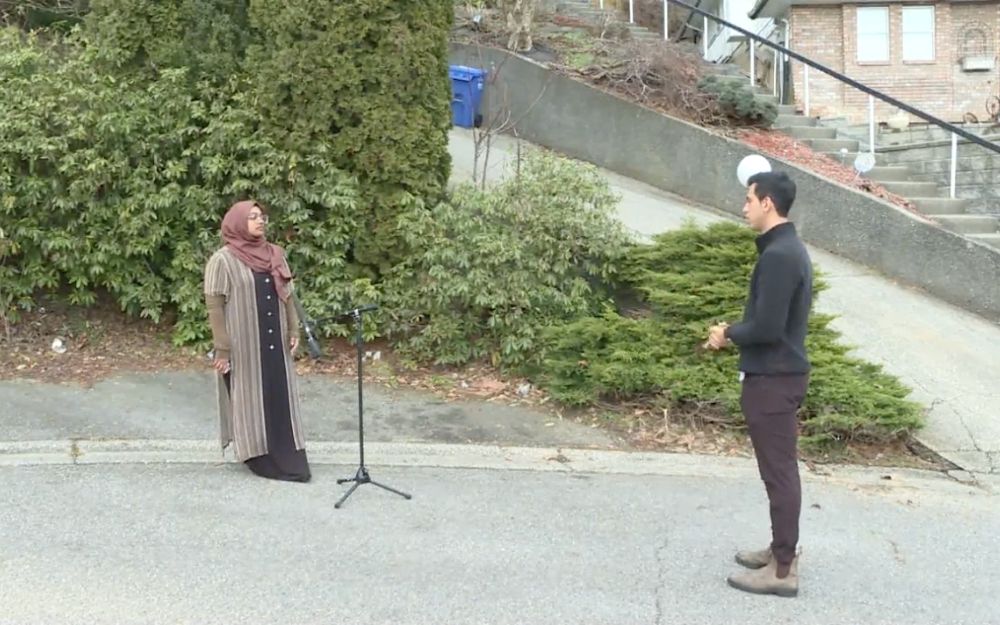
Action against Islamophobia five years after Quebec City mosque attack
Ashley Pearson Khan, a Toronto resident who converted to Islam in 2019 while taking part in a 30-day hijab challenge during the month of Ramadan, said laws need to be put in place to safeguard Muslims from discrimination in the workplace.
Making sure Muslim women are protected in the workplace “would make a huge difference”, she said.
Hajira Wajid, an Indian Muslim living in Winnipeg, is concerned about the misinformation circulating online about Islam and those who wear the hijab.
“There needs to be more done to educate and raise awareness to eliminate Islamophobia,” she said, adding that “Bill 21 definitely has to go”.
Saba Aziz

